
This is one of my favorite times of the year. That’s because the NBA Playoffs are in full swing. Soon we’ll know the two teams that will be playing in the Finals, in competition for the coveted Larry O’Brien Championship Trophy.
It’s the stretch run, where the stars and big names have to overcome those nagging injuries – and mega-egos – and play together in that often grueling last round in the quest to grab those gaudy championship rings.
And not surprisingly, there also much attention on the head coaches still standing – guys like Steve Kerr of the Golden State Warriors or Erik Spoelstra of the Miami Heat. Both have already won their rings, and along the way, have proved they can manage the biggest of superstars, whether it’s LeBron James or Steph Curry.
That’s why a recent story in the Bleacher Report reminded me that NBA coaches are a lot like radio station programmers. Of course, they have to know the game – of what it takes to win on the court or in the ratings book. But the best of the best are stellar managers of people – especially the stars of their respective sports, basketball and radio programming.
The story by Timothy Rapp – “Nets’ Kevin Durant Says NBA Head Coach’s Biggest Job is Managing Personalities” – resonated for me. That’s because some of the best radio stations – even in 2022 – are populated by outsized talent and – yes – big egos. But isn’t that what you want from your biggest stars? Swagger, big moments, leadership, and nerves of steel in the clutch.
You also want them to care about more than just themselves, and that’s no easy task when you’re talking about superstars – on the hardwood or in the air studio.
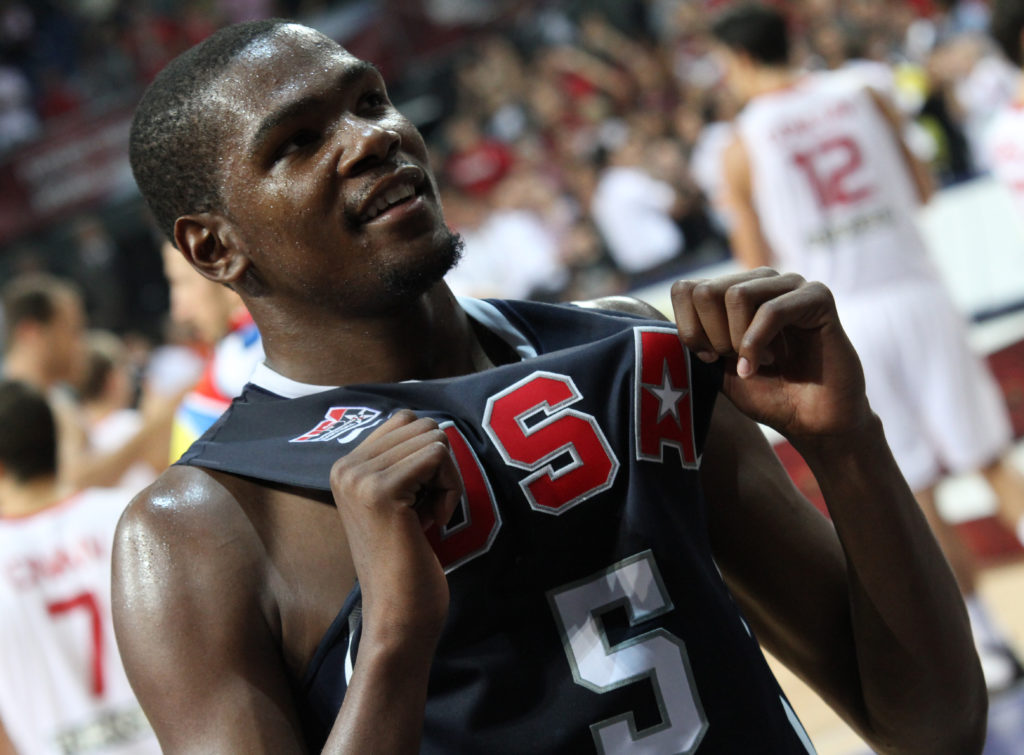 As I read Rapp’s story and the words of Kevin Durant (pictured), I couldn’t help but think about some of the truly talented programmers I’ve had the honor to watch and to work with over the years.
As I read Rapp’s story and the words of Kevin Durant (pictured), I couldn’t help but think about some of the truly talented programmers I’ve had the honor to watch and to work with over the years.
I’m talking about those rare PDs who cracked the code, learning how to manage their biggest and most volatile personalities, on the way to winning in the ratings, as well as Marconi and Crystal awards.
So, in honor of those talented tacticians, here are five key similarities shared by brilliant NBA coaches and savvy radio programmers:
1. First and foremost, it’s about managing talent. And that means the biggest egos in the business. It’s hard to think of too many superstars in either game – NBA basketball or big league radio – who lacked that bigger-than-life personality and charisma. Whether Magic Johnson or Larry Lujack, Dennis Rodman or Howard Stern, you want the most talented – OK, cocky and mercurial – stars on your team, blemishes and all.
But those are the same players that present frequent management challenges. As Kevin Durant explained, it’s about “managing personalities.”
And he went on: “We all know how to play. We all know all the terminology. We know every single scheme that can be. … Managing personalities, I think that’s (the coach’s) biggest job.”
As it is in radio. Great programmers need to be more than scrawling x’s and o’s on a whiteboard or scheduling music. The magic is in their ability to get their most talented players working together.
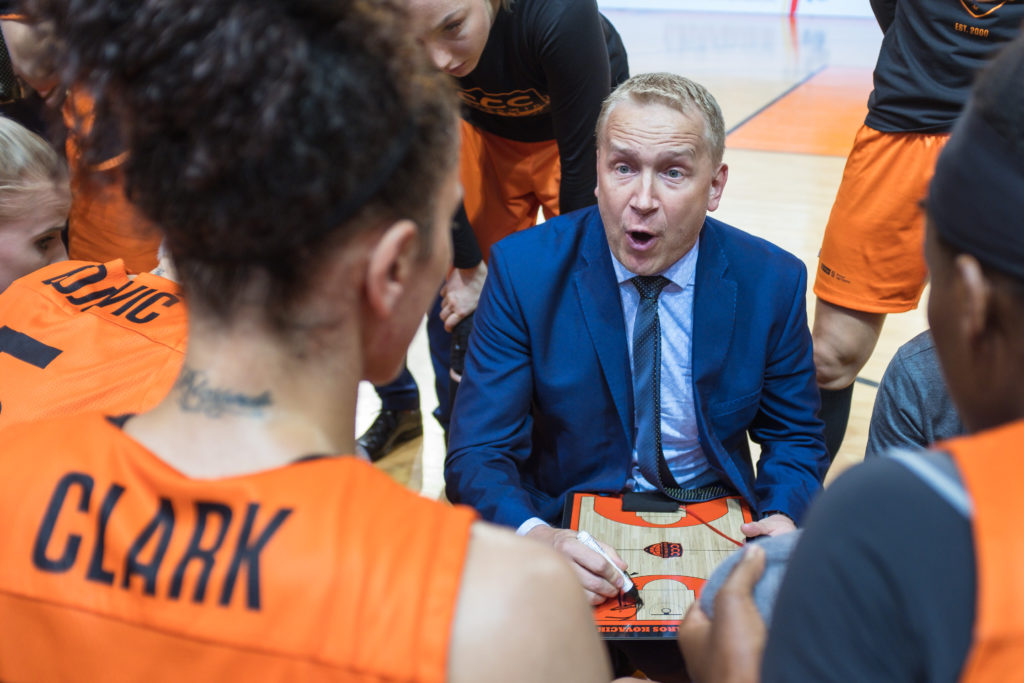
2. It’s about building an internal culture. The coaching greats as well as the brilliant radio programmers understand culture and vibe matter. You’ve got to create the type of environment where your best talent can thrive, while everyone else understands their role in the organization.
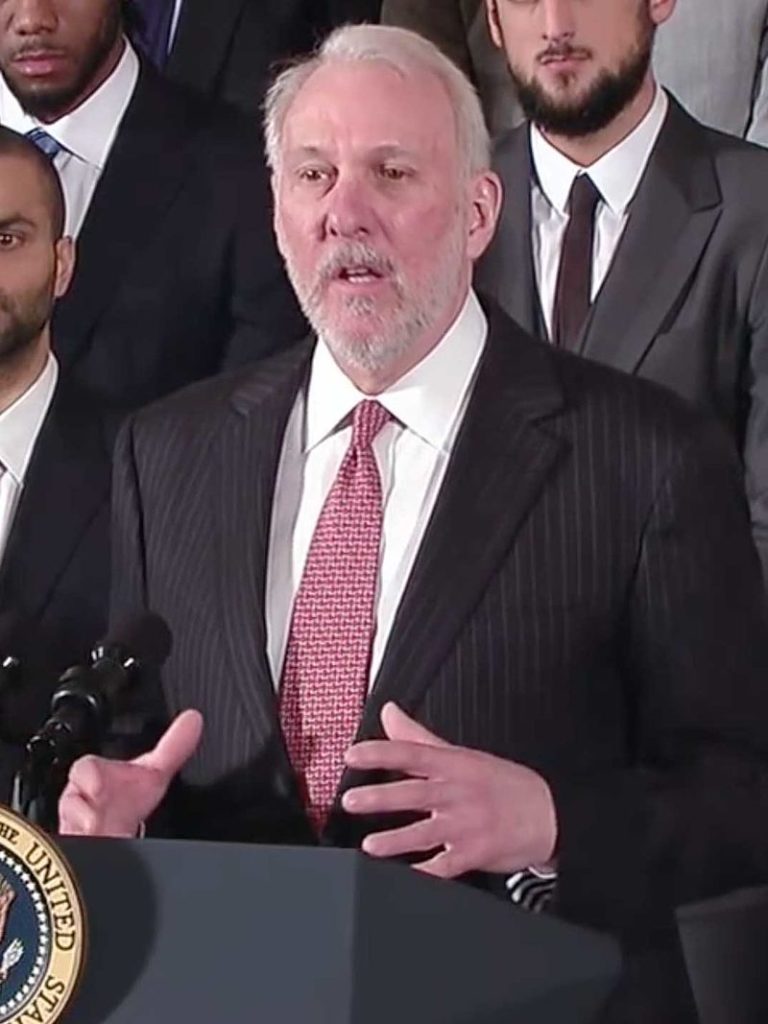 Not everyone can play point guard or host the morning show. The salary range can very greatly as you move up and down the bench – or in the jock lounge. It goes with the territory when you’re dealing with the subjectivity of evaluating and compensating talent.
Not everyone can play point guard or host the morning show. The salary range can very greatly as you move up and down the bench – or in the jock lounge. It goes with the territory when you’re dealing with the subjectivity of evaluating and compensating talent.
But on great basketball teams and stellar airstaffs, all the players know what it means to contribute. It’s also about getting them to play hard for you, no matter the circumstance or conditions.
Rapp quotes the Spurs’ Gregg Popovich (pictured) who is, by far, the longest running coach in the NBA. No one has built a better culture than Pop:
“You have to make players realize you care about them. And they have to care about each other and be interested in each other. Then they start to feel a responsibility toward each other. Then they want to do for each other.”
3. In the end, it’s about the team. You don’t win championships or Crystals without the entire organization pulling together.
As every great NBA executive notes, it’s not about personal statistics. Rapp quotes the Celtics’ legendary exec, Red Auerbach, who scoffed at stats while taking a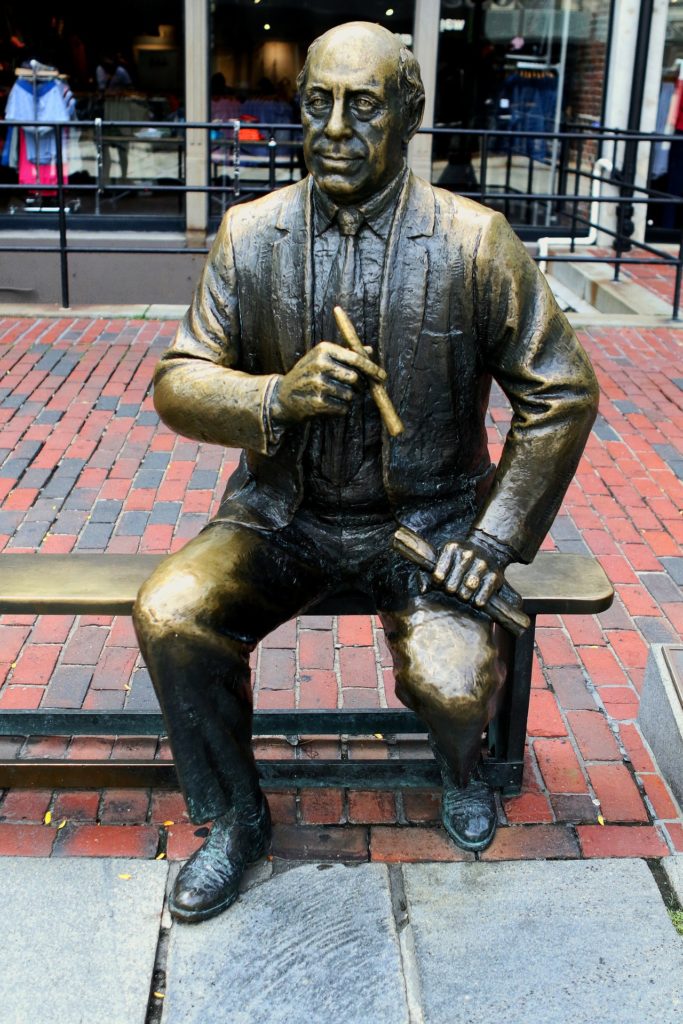 puff on that signature cigar:
puff on that signature cigar:
“Individual honors are nice, but no Celtic has ever gone out of his way to achieve them. We have never had the league’s top scorer. In fact, we won seven league championships without placing even one among the league’s top 10 scorers. Our pride was never rooted in statistics.”
When the ratings come out, there’s a tendency for on-air talent to ask, “How did I do?” or “How were middays?” Of course, that matters. But in the big scheme of things, it’s about prime time – the entire day or season – however defined by the team or the station. And that’s the sum of the parts. You don’t win with one outstanding daypart of one superstar player.
I added a couple of sports analogies to Timothy Rapp’s fine list:
4. Great coaches inspire. In the NBA, it’s about managing multi-millionaires. At a full-service major market radio station, the 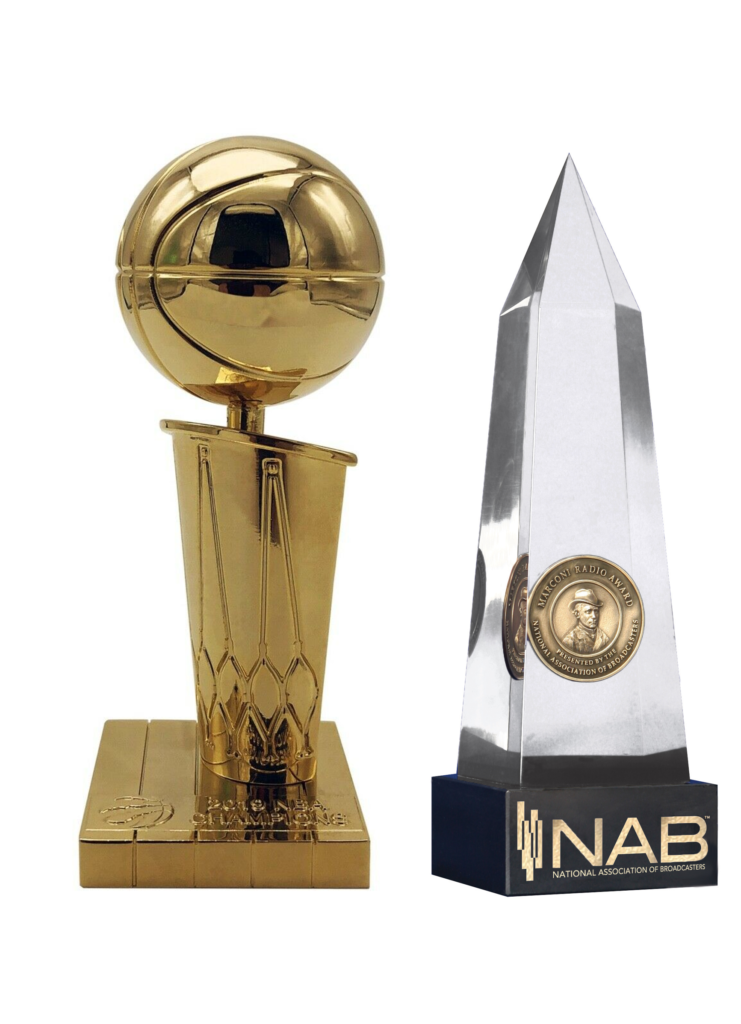 salaries and perks can be enormous.
salaries and perks can be enormous.
And the pressure to perform is ongoing. Once an NBA season ends, the immediate thought is the draft and the upcoming campaign. You’re only as good as your last season.
Or rating book.
Radio in most markets is a 24/7/365 affair. When the Winter rating book concludes, the Spring book immediately begins. And so does the need to motivate the players not just sometimes, but all season and year long.
Again and again.
Chuck Daly, coach of the back-to-back championship Detroit Pistons in the 80’s used to watch televangelists for ideas, always looking for new ways to motivate jaded and tired players.
To continue to be effective and persuasive you have to read, learn from others, be a great listener, and have tons of empathy. When you think about hall of fame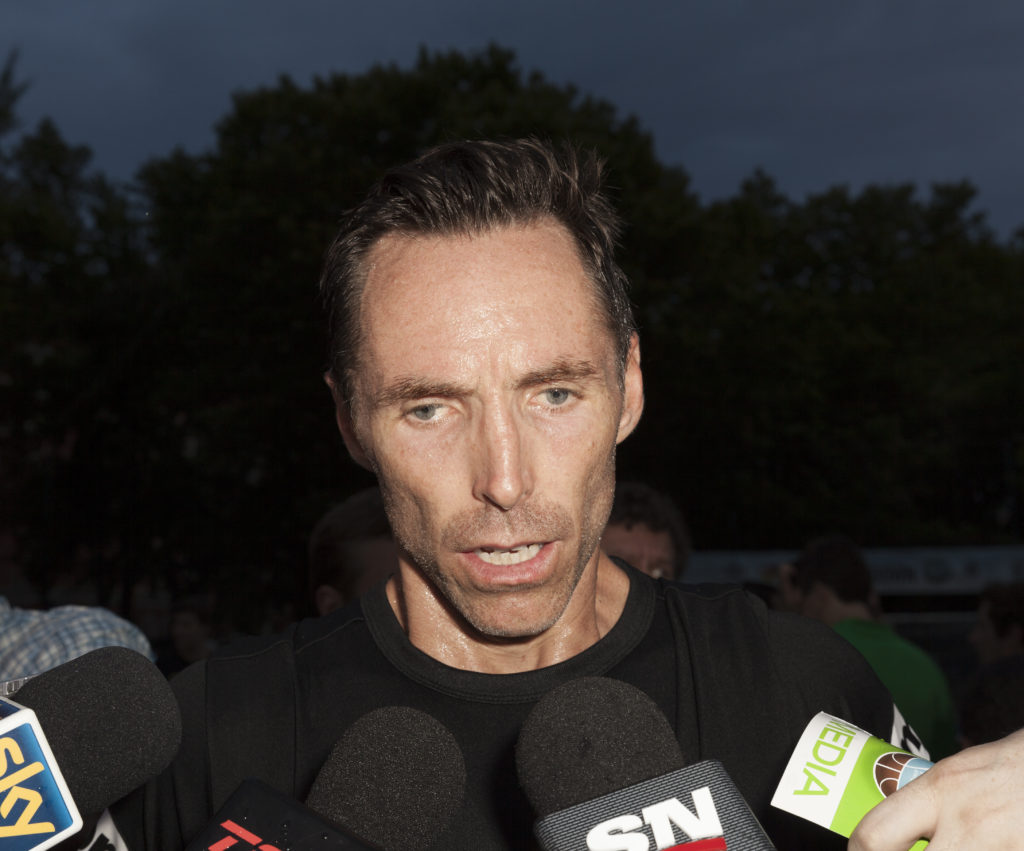 coaches and programmers, that’s precisely where they excel.
coaches and programmers, that’s precisely where they excel.
Former player and now head coach, Steve Nash (pictured) put it this way:
“There are so many different ways to lead. The most important thing is to be genuine. To have people around you trust you, trust in what you stand for and who you are. And I think that if people watch you day in and day out and believe in your motives and they believe that you set a high standard for yourself.”
5. They know how to manage up. It’s one thing to coach the team – or the airstaff. That’s what great leaders are paid to do.
But to achieve true success, it’s also about working the bosses, the execs, and the organization to get what you want. That might be more budget and resources, it might be about buying more time for the system or strategy to succeed, or it may be about insulating the – big centers or afternoon teams – from the vagaries and indulgences of upper management or ownership.
Sometimes, it’s about convincing the powers-that-be of a player’s true value or to perhaps even look the other way when something has gone awry. Strong head coaches and P.D.s know how to get it done within the organization. Effective leadership is always about finding ways to make the system work, and then always means managing down – and managing up.
If you get a chance to watch any of these last few games as those two teams duke it out in what could be a seven-game final round, don’t just watch the skilled athletes running up and down the court. It’s those magicians on the sidelines – the league’s equivalent of P.D.s – who are worthy of your attention. Their moves can be every bit as savvy and brilliant as the guys with the ball.
Or behind the mic.
- Media And Technology In 2025: Believe It Or Not! - April 18, 2025
- In Radio, You Just Never Know - April 17, 2025
- The Secret To Making A Great Podcast (And Great Radio) - April 16, 2025




Fred,
Great piece, and this nails it. It takes a PD many years to put all these puzzle pieces together. The great GM Tom Joerres from the Lazer/Hog Milwaukee days taught me that often, taking the mindset that the PD works for the talent, not the other way around, is a great way to achieve the culture and teamwork necessary to win championships. And every great talent is different than the masses, at times in ways that can annoy the troops at the same time said talent is putting up the points to win. The best managers embrace this along with the need to “conduct the orchestra” so that everyone plays their part and knows they have an important role in the overall success and sound of the brand. Thanks for another great post today!
Joerres was one of the good ones, expert at managing up and managing down. Thanks for this, Keith.
Absolutly superb Fred.
Appreciated, Greg.
Great article!
As a basketball fan and Radio vet this really simplifies what others would likely deem to be complicated. The X’s and O’s Are important but if coaches and manages create or allow a to ic environment to incubate, the blessing of having great talent dissipates.
Managing Personality on and off air, on and off the court are key to building a winning team.
Appreciate that, Vern. I’m watching “Winning Time” on AppleTV and getting the same vibe.
Fred,
“ Winning Time” is great entertainment but the embellishments regarding what truly went on is amazing.
2 really good books-
“On and Off the Court”by Red Auerbach
And Jeff Pearlman’s “Three Ring Circus” are excellent reads.
Great article!
As a basketball fan and Radio vet this really simplifies what others would likely deem to be complicated. The X’s and O’s Are important but if coaches and managers create or allow a toxic environment to incubate, the blessing of having great talent dissipates.
Managing Personality on and off air, on and off the court are key to building a winning team.
Fred, One other observation.
Coach, Ime Udoka and the Boston Celtics are great examples. His managing of the same stars that played under former coach Brad Stevens is entirely different and the results speak for themselves.
Both great coaches but Ime manages the personalities of his star players much differently than Brad did and we are now seeing the results.